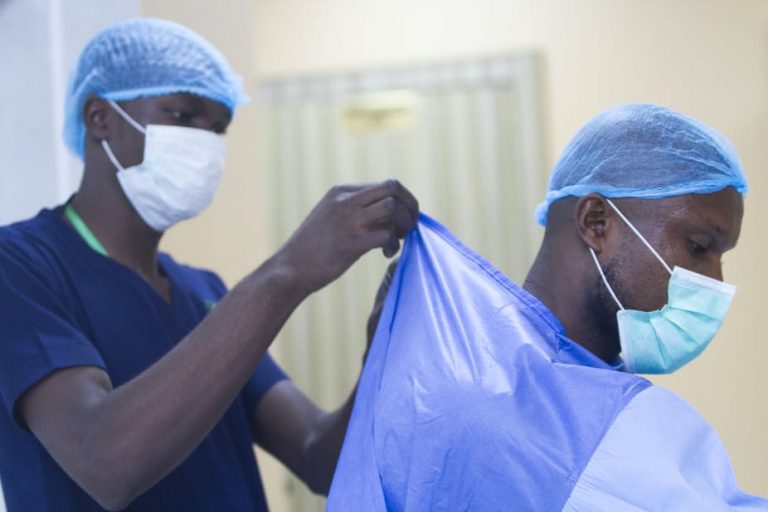Resident doctors at the Chukwuemeka Odumegwu Ojukwu University Teaching Hospital in Awka urge governments at various levels to proactively tackle the issue of brain drain in the healthcare sector.
The doctors issued this call during the inaugural Annual General Meeting and Academic Conference of the Association of Resident Doctors, COOUTH branch in Awka on Sunday.
The theme of the AGM and Academic Conference was “Brain Drain and the Residency Training Programme, Striking a Balance”.
Dr. Nnaemeka Anunihu, the President of ARD, COOUTH, expressed that the impact of brain drain is significantly affecting the sector.
Anunihu noted that while the issue of brain drain is a challenge faced by many third-world countries, its manifestation in Nigeria has reached an unacceptable level.
He emphasized that the government needs to investigate why practicing abroad remains more appealing to doctors and other health professionals trained in Nigeria than practicing within the country.
“There are a number of factors influencing the exodus of doctors, including the push and the pull factors, wages, facilities, security and value for earned wages.”
“Brain drain is a serious loss to us as a country because Nigerian doctors are some of the best across the world, so why would we not want to keep them here,” he said.
Anunihu mentioned that the Residency program at COOUTH faced similar challenges to those encountered in other institutions, despite being state-owned.
He advocated for the localization of the Medical Residency Training Act, emphasizing that this would instill certainty and encourage doctors to pursue training with the assurance that their rights are legally protected.
Adding to the discussion, Dr. Princeton Okam, a consultant obstetrician at Nnamdi Azikiwe University Teaching Hospital, Nnewi, and Vice Chairman of the Nigeria Medical Association, Anambra Branch, characterized brain drain as a persistent issue affecting the medical profession.
Okam asserted that the conversation on brain drain would persist until effective measures were implemented.
While acknowledging the government’s significant role, he urged doctors to contemplate how they could contribute to addressing the problem.
According to him, “It is not a bed of roses anywhere. but there must be jobs after training. If better facilities are put in place; if remuneration is made competitive, I don’t think anybody will like to leave this country to practice elsewhere.
Truth is that those who wish to come back don’t have a place here because they have been displaced. They are trapped there. They have better training but we can’t benefit from the brain gain.
“So, the advice is that our young doctors should think deeply before making such a decision,” he said.
Opening the event, Dr. Josephat Akabuike, Chief Medical Director of COOUTH, lauded the Resident Doctors for their commitment and contributions to effective healthcare service delivery at the institution. Akabuike pledged ongoing efforts to enhance staff welfare and support for improved productivity.
While urging doctors to remain focused and prioritize patients’ well-being, he cautioned against transferring aggression to patients. He emphasized that the health institution’s primary objective is to save lives, regardless of the challenges or the environment they may encounter.
In his lecture, Dr. Nnaemka Umedum defined brain drain as the emigration of highly skilled medical personnel from poor or middle-income countries to more developed ones. Umedum identified factors such as limited opportunities for advanced medical training, underfunded healthcare systems, inadequate remuneration, and unfavorable socioeconomic and political conditions as major causes of brain drain in developing countries.
“Loss of valuable human resources, slowing down of economic growth, lack of innovation and creativity, are some of the negative effects of brain drain on the country involved.
“Resident Doctors and other health professionals should resist the temptation to emigrate by seeking opportunities to gain additional training and experience in their home country,” he said.



